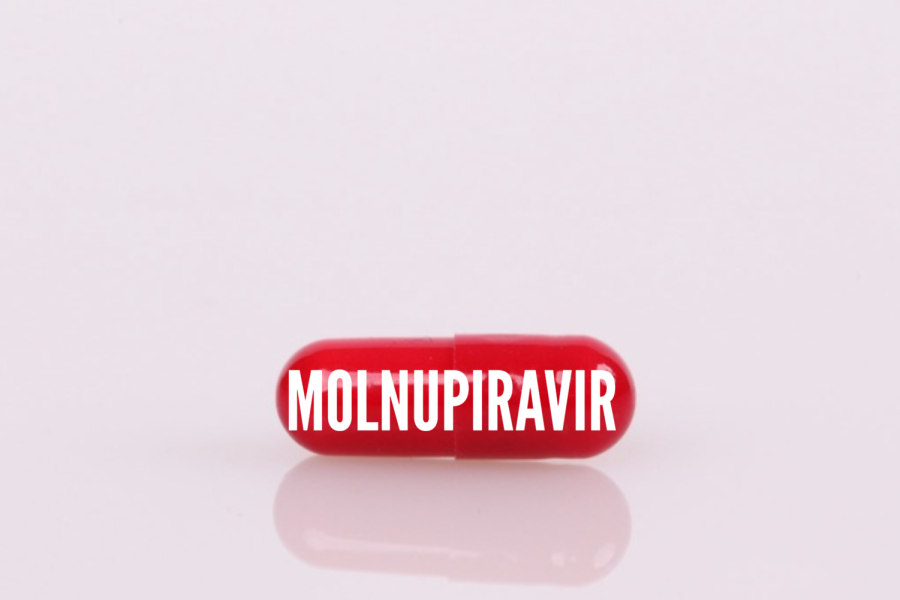Merck Introduces COVID-19 Treatment Pill
The Bill and Melinda Gates Foundation commited $120 million to speed up production of the pills. The increased production will lead to greater availability of the treatment in other countries.
October 22, 2021
On Friday, October 1st, pharmaceutical company Merck announced molnupiravir, an antiviral pill that reduces the risk of hospitalization and death in patients with Covid-19. The pills were developed from the template of an influenza vaccine and are to be taken by patients who test positive for Covid-19. If approved by the Food and Drug Administration (FDA), the pill will be the first Covid-19 treatment that won’t have to be administered intravenously through an IV or infusion.
The pill reduces the severity and longevity of the virus while allowing patients to stay at home. This frees up hospital space and reduces the risk of transmission to others. Unlike existing Covid-19 treatments like remdesivir, an antiviral infusion that prevents the worsening of symptoms, molnupiravir directly fights the virus. Molnupiravir also targets Covid-19 variants, like Gamma and Delta. While any possible side effects of the treatment are difficult to differentiate from the effects of Covid-19 itself, Merck has not reported any so far.
On Oct. 11, Merck applied for emergency authorization of its pill from the FDA in order to start using and administering it in the US. The US government has ordered 1.7 million courses of treatment that it, much like the vaccine, plans to offer for free to Americans. Molnupiravir costs about $700 per set, meaning the US government has already spent $1.2 billion on the treatments.
This process may be slowed by the uncertainty of molnupiravir’s safety. The FDA has planned a meeting with outside experts on Nov. 30 to vote on if the pill should be approved. This is the first time the FDA has decided to hold an advisory committee meeting for any Covid-19 treatment. Concerns about the risk of birth defects and an increased risk of cancer from molnupiravir may stop the treatment option before it has the opportunity to help stop the spread.
That being said, Merck aims to create enough capsules for 10 million people by the end of the year. They also hope to make the pill cheaper and more available to other countries where the virus is more violent and vaccines are less accessible.
To help increase accessibility, Merck has licensed the pill to several generic Indian drugmakers to provide more pills for low-income countries. The FDA estimated that molnupiravir will be approved and released by December of this year.




Judith soto • Oct 22, 2021 at 4:29 pm
I’m allergic to egg whites, iodine, sulfa, percodan etc, I’ve never been vaccinated because I go into anaphylaxis to all things I’m allergic too. How safe is this for me? I’m 68 yrs old.